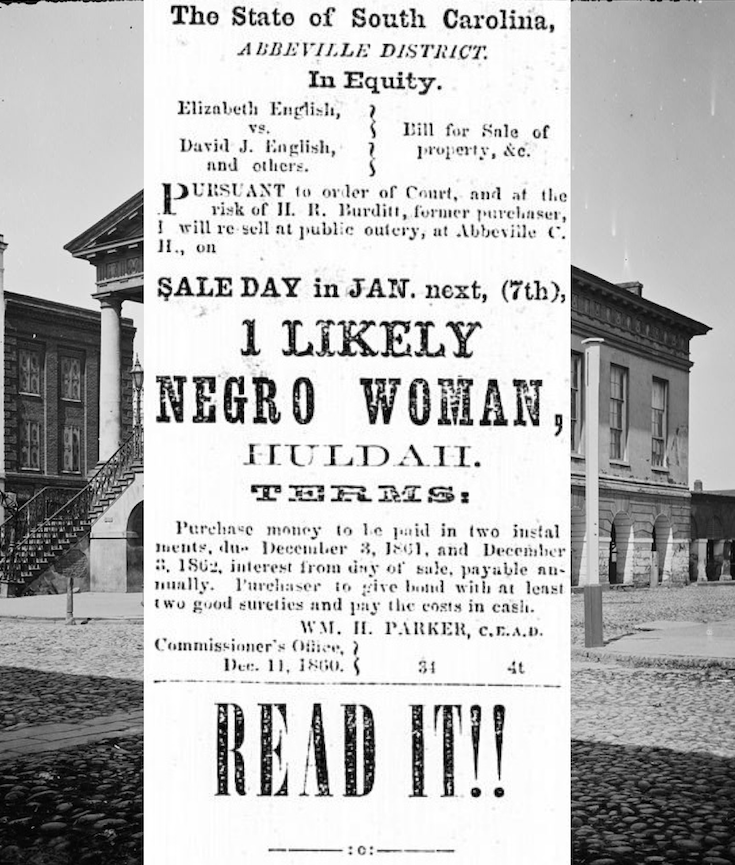[dropcap]You[/dropcap] may be familiar with the sale of enslaved people through private parties, but numerous people were also sold through local courts with the courthouse as their backdrop. How would you find documentation of such cases, and what are examples of situations that would have brought about this end result? One quick way to find clues would be through historical newspapers.
The following are three types of court sales of enslaved people:
SHERIFF SALES
According to Thomas D. Russell’s, South Carolina’s Largest Slave Auctioneering Firm – Symposium on the Law of Slavery: Criminal and Civil Law of Slavery, “South Carolina sheriffs’ sales took place on the first Monday of each month, a day known as Sale Day.” When people could not pay their debts and lawsuits were brought against them, their property could be sold to satisfy their debt. The article below mentions Sale Day in Abbeville, South Carolina where a “large amount of property consisting of land and negroes” was sold.
[mc4wp_form id=”6042″]




INTERNATIONAL AFRICAN AMERICAN MUSEUM | CHARLESTON, SC
The IAAM Center for Family History is a one of a kind, unprecedented research center with a special focus on African American genealogy.
The Center for Family History supports IAAM’s goal of becoming a unique center of learning through the development of resources and programs to help individuals and families advance their understanding of their family’s history and the role their ancestors played in shaping American history.
The center will be a part of the International African American Museum, projected to open in early 2020. Until then, please enjoy our online offerings and watch for our community seminars! (Wikipedia).


You must be logged in to post a comment.